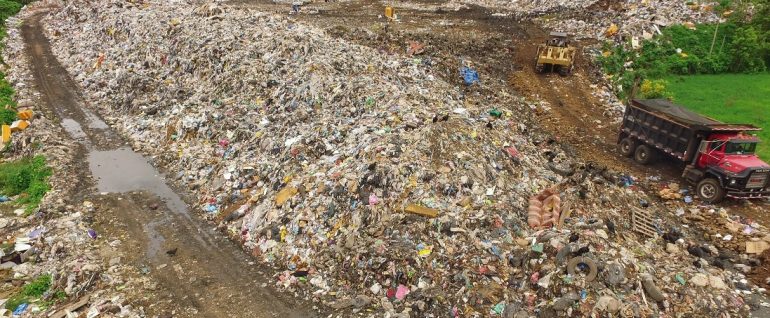Overall, if you take the value of the four companies we were working with on 1st January 2023, which I estimate to be collectively around circa £39M, and contrast this with the values of the same businesses on 1st January 2024, which I estimate to be £106M, you could say we have had a pretty good year. Of course, revaluations are largely baseless without the ability to exit. Yet two of the companies we are working with are engaged with numerous institutional investors. Institutional investors are generally quite keen on providing some form of exit for early-stage investors, and both Megawatt [...]
Read MoreBy Dr Jacqui Taylor, Clean Tech Advisor at 350PPM COP28 marked a pivotal moment in climate change talks with the first-ever global stocktake since the Paris Agreement. It also included the first-ever agreement to transition “away from fossil fuels in energy systems in a just, orderly and equitable manner, accelerating action in this critical decade, so as to achieve net zero by 2050 in keeping with the science.”. However, the UN’s climate change conference has fallen disastrously short of enforcing a fossil fuel phase-out or indeed providing sufficient climate finance, known as Loss and Damage, to support affected communities in dealing with [...]
Read MoreGreenMine, the new trading name of Pyrolysise Ltd, is gaining significant traction. GreenMine has co-developed a series of technologies designed for processing unsorted municipal waste (including plastics) from kerbside collection and landfill sites. One of them is detailed here. Municipal waste is a significant contributor to atmospheric pollution with landfill accounting for 4% of greenhouse gases in the UK. Landfills can also contaminate water supply through leachate into the subsoil. With GreenMine's technology, unsorted waste can be processed into bio-coal (allowing energy generation), bio-char (the new black gold), bio-oil (including lignin) and recyclables (glass, metals, minerals etc). Green baseload power and as [...]
Read MoreWe’re delighted to welcome Dr Jacqui Taylor to our team. Jacqui is a high-level climate leader recognised by the United Nations (UN). She is a principal consultant to companies in the clean tech and renewable energy sectors, and an expert advisor to the UN and the European Commission, providing policy and technology strategic input to address climate change. Dr Jacqui Taylor said: “I am delighted to join the team at 350 PPM. I will be bringing together my investment, climate policy and cleantech expertise to deliver a new approach to the emission reductions required to deliver net zero”. For the past 15 years, [...]
Read MorePower generation currently accounts for approximately 30 percent of global CO₂ emissions. To meet the Paris Agreement’s target of full decarbonisation by 2050, the world is increasingly desperate for an abundant source of clean energy and many governments and utilities are shifting away from fossil fuels as their primary energy source and turning to renewable energy technologies to help mitigate the climate crisis. Volatility in the energy markets and geopolitical challenges may have complicated the transition to net zero in the short run, but in the longer run, the economics of renewable energy sources will drive up investment. So, can the energy that powers [...]
Read MoreWind power and solar energy are the most widely used renewable energy sources, but while these sources of power are clean and renewable, they have one main disadvantage — they are not available 100% of the time. Solar power is only available during the day, while wind does not blow continuously. Solar power is, therefore, mostly available when there is less of a need for lighting homes for example. Wind power is a variable resource, and the amount of electricity produced at any given point in time by a given plant will depend on wind speeds, air density, and turbine characteristics [...]
Read MoreThe government announced today (Thursday 7 September) that it plans to put in place an ambitious and cutting-edge suite of new, alternative R&D programmes to support the UK’s flourishing fusion sector and strengthen international collaboration, in support of the UK Fusion Strategy. This is following the decision to not associate to the Euratom Research and Training programme (Euratom R&T) and by extension, the Fusion for Energy Programme. To deliver this package the government plans to invest up to £650 million until 2027, subject to business case approvals. This is in addition to the £126 million announced in November 2022 to support [...]
Read MoreUK-based business, Pyrolysise, is introducing new waste carbonisation technology with zero toxic emissions as a game-changing solution to reduce greenhouse gases by mining landfill and reclaiming redundant and contaminated land. John Bell, Managing Director of Pyrolysise, said: “Our technology goes way beyond the usual benefits of a waste recycling process and has huge potential for us to address the housing shortage by cleaning up existing landfills near residential areas, enabling the safe re-development of these areas for affordable housing and leisure amenities. “We’re aiming to eradicate landfill sites and create sustainable urban living capable of generating energy, sequestration of carbon and aesthetically [...]
Read MoreAccording to Fortune, nine out of ten start-ups fail. Cold statistics like these are not intended to discourage entrepreneurs, but to encourage them to work smarter and harder. If you ask the experts why start-ups fall short, you might hear about “horses” (that is, the opportunities start-ups are targeting) and “jockeys” (the founders). Both are important, but if forced to choose, most VCs would favour an able founder over an attractive opportunity. Consequently, when asked to explain why a promising new venture eventually stumbled, most are inclined to cite the inadequacies of its founders—in particular, their lack of grit, industry acumen, [...]
Read MoreThe devasting effects of climate change are being witnessed around the world as we are fast approaching a 1.5°C rise in global temperature – a crucial tipping point after which irreversible damage will be done. To curb global warming, we must reduce greenhouse gas emissions by 43% compared with 2019 levels – taking CO₂ levels from 410 parts per million (PPM) to 350 PPM or below. Yet currently, the combined Nationally Determined Contributions (NDCs), countries’ climate pledges under the Paris Agreement, would mean only a 10% cut in greenhouse gas emissions, putting the world on track for a 2.5°C increase. So, [...]
Read More








